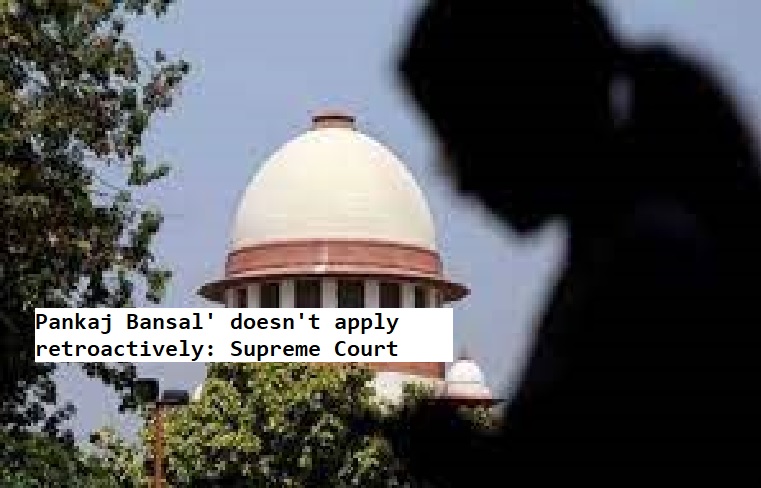


The Supreme Court, on December 15, clarified its stance on the requirement for the Directorate of Enforcement (ED) to provide written grounds of arrest to the accused at the time of arrest, as established in the Pankaj Bansal v. Union of India judgment. The Court, composed of Justices Bela M Trivedi and Satish Chandra Sharma, asserted that the Pankaj Bansal ruling does not have retrospective application.
In essence, the Court emphasized that the absence of written grounds of arrest until the pronouncement date of Pankaj Bansal (October 3, 2023) should not be deemed illegal. Additionally, the bench made notable observations that modify the Pankaj Bansal dictum. It clarified that while the written grounds must be provided within 24 hours, oral communication of the grounds at the time of arrest is sufficient.
The bench referred to Section 19 of the Prevention of Money Laundering Act (PMLA), which mandates informing the accused of arrest grounds as soon as possible. The Court interpreted the phrase "as soon as may be" as meaning "as early as possible without avoidable delay" or within a reasonably convenient period. It emphasized that providing written grounds within 24 hours aligns with the statutory requirements.
The Court stated, "Reasonably convenient or reasonably requisite time to inform the arrestee about the grounds of his arrest would be twenty-four hours of the arrest." It emphasized that oral communication at the time of arrest, coupled with providing a written statement within 24 hours, complies with both Section 19 of PMLA and Article 22(1) of the Constitution of India.
The bench further relied on the judgment in Vijay Madanlal Chaudhary v. Union of India, a 3-judge bench decision analyzing Section 19, which deemed it compliant with Article 21 of the Constitution. The Court asserted that since Vijay Madanlal holds precedence, observations by benches of lesser strength on Section 19 are not binding.
Highlighting the importance of Vijay Madanlal, the Court stated, "The three-judge bench in Vijay Madanlal Choudhary case (supra) having already examined in detail the constitutional validity of Section 19 of PMLA on the touchstone of Article 22(1) and upheld the same, it holds the field as on the date."
Addressing the Division Bench in Pankaj Bansal, the Court pointed out that it directed the furnishing of grounds of arrest in writing "henceforth," implying the non-mandatory nature of this requirement until the judgment date. Therefore, the Court concluded that the lack of written grounds until the pronouncement of the Pankaj Bansal judgment was neither illegal nor a fault on the part of the arresting officer.
It's noteworthy that different High Courts have expressed varied opinions on this matter, with the Punjab & Haryana High Court taking a stance consistent with Pankaj Bansal.
Consequently, the Court dismissed an appeal by Supertech Chairman Ram Kishor Arora against the Delhi High Court's affirmation of his arrest by the Enforcement Directorate in a money laundering case. Arora had contested his arrest, alleging it was arbitrary and illegal, and that he was denied his fundamental rights under Article 22(1) of the Constitution, including the right to consult and be defended by a legal practitioner of his choice.
TAGS: Supreme Court Pankaj Bansal Directorate of Enforcement arrest grounds retrospective application